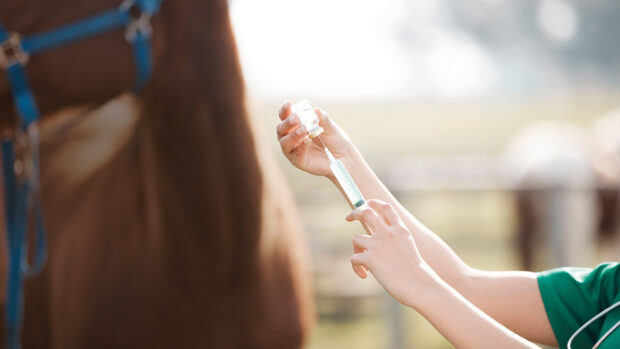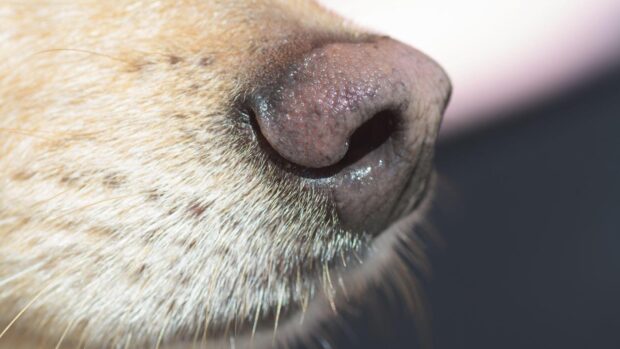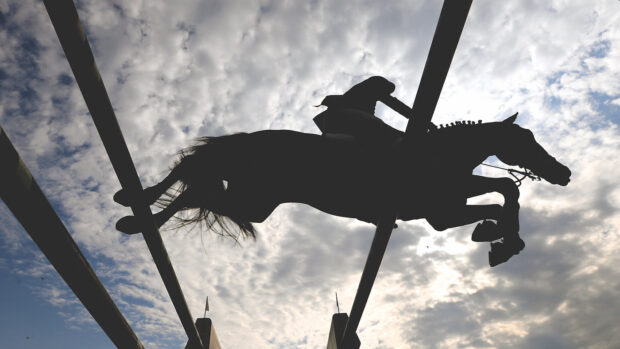The Olympic doping saga has brought international veterinary procedure into question amid suggestions that the correct veterinary procedure was not followed in Athens.
Two German horses tested positive for banned substances at the Olympics in August. Show jumping team gold medallist Ludger Beerbaum’s ride Goldfever was found to have traces of a form of cortisone in his system, while eventer Bettina Hoy’s horse Ringwood Cockatoo tested positive for an anti-histamine.
Goldfever was being treated for a wound in the fetlock, which had healed but re-opened in the dry sand of Athens. Although the groom claimed to have shown the ointment used to the team vet, it seems that no official permission was given by the FEI veterinary commission.
Beerbaum defended the use of the ointment: “It was no doping in my case, because the treatment didn’t enhance Goldfever’s performance. It was simply applied for the welfare of the horse.”
He concedes, however, that there was a serious breakdown in communications between rider, groom, home vet and team vet, which resulted in the positive test.
“I do feel responsible for the mistakes,” he said.
“But because I knew that our team vet had approved the treatment, I wasn’t worried,” Beerbaum explained.
“If the treatment of Goldfever had been reported through the official veterinary channels in Athens, it would perhaps have been permitted, and there would be no issue now,” he added.
In Hoy’s case, there seems to have been a similar degree of confusion surrounding the treatment of a swollen patch in Ringwood Cockatoo’s saddle area. “I relied on the approval of our team vet Dr Carsten Weitkamp, who had inquired of the FEI vet responsible, whether the treatment was permissible,” Hoy explained.
The verbal permission sought by the team vet did not accord, however, with the formal procedure of going through the ground jury and the FEI veterinary commission to get written permission.
“I sought advice from what I though was an FEI vet about which of two substances I should use on the horse”, explains Dr Weitkamp. “He advised me to use Benadryl, and made no mention of needing written permission from the FEI.
“It was confusing. In the past sometimes I haven’t needed written permission for other medication. I had asked to speak to an FEI vet at the equine hospital, and I assumed he was an FEI vet, and if he wasn’t, it’s a little strange that I wasn’t made aware of that.”
Dr Weitkamp offered his resignation at Boekelo last weekend. “Ultimately, it is my mistake, as I should have ascertained once and for all whether or not I needed written permission,” he told HHO.
“It was bad luck that I must have addressed the wrong person, but in the circumstances, and in light of the negative media coverage, resigning was the proper course open to me.
“If I am asked, officially, to return to the position, and I feel that everyone can trust me, then I will go back,” he adds.
Although neither Beerbaum nor Hoy has yet formally requested the B-sample test, both are expected to do so.
Lengthy process
Meanwhile, concerns have been raised about the length of time taken for the FEI to produce test results.
Nearly two months after the conclusion of competition in Athens, two gold medallists (Irish rider Cian O’Connor, show jumping individual gold medallist and Ludger Beerbaum, show jumping team gold medallist) risk being stripped of their medals, while others stand to gain medals.
“The FEI system is designed to be as fair as possible to everyone involved except those who might now move into the medals,” explains Lucy Higginson, Editor of Horse & Hound in her editorial this week. “The show’s over; sponsors have allocated their budget 2005 what good is a medal now?”
It is likely to be at least another month before any of the Olympic cases are resolved, and should there be any reallocation of medals, there is likely to be a much longer delay before the athletes in question are awarded them, as seen in the case of the eventing medal saga.



